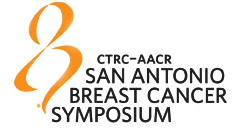News from the San Antonio Breast Cancer Symposium
January 16, 2012
by Vicki Tashman, Founder
 Every December, breast cancer oncologists from around the world descend on San Antonio to discuss and learn about the newest research and practices in breast cancer care. My fellow advocate and friend, Debbie Laxague summarized the 2011 symposium beautifully.
(The following was written by Debbie Laxague, breast cancer advocate)
I've been attending SABCS since 2003. In those early years, I was fascinated and thrilled by each new understanding that was revealed in the plenary talks and even within the subgroups of the various drug studies. Over the years, I've remained fascinated. But the thrill is pretty much gone. For one thing, each new understanding brings with it more questions, making it seem like an onion with all peel and no pith. For another, the focus only on the cancer cell and on killing that cell seems (increasingly) TOO fine a focus.
But the bottom line is that despite some advances that seemed huge at the time (Herceptin is probably the biggest example), little progress has been made in decreasing deaths from breast cancer. The one shining-star that still move me, every year at SABCS, is seeing the dedication and brilliance of the many hearts and minds devoted to breast cancer research and to the care of those with breast cancer.
So to sum it up? I'll try to be succinct (hah). It's the paradox! It's the brilliance and the billions of dollars and man-years of effort -- INCREDIBLE advances in our understanding of what's going on when cancer happens. It's not for lack of effort (nor money) that the results have been so disappointing. The disappointment, of course, is that women and men are still dying, women and men are still suffering toxicities and enduring poor quality of life (QOL- at great financial cost), to gain not-nearly-enough additional good life-time.
I do not claim to know the answer to this terrible paradox, but it does seem clear to me that we have to change both the focus of research and the way it is done. We have to broaden our view and look beyond the simplicity of cytotoxic therapies. We have to foster collaboration instead of competition. We have to know, before beginning ANY investigation, what the translational outcome of that investigation would be.
I did perceive some encouraging changes this year at SABCS. Not so much in the regular sessions, which were, as usual, mostly about incremental advances along the lines of using "A" instead of "B", etc. But in the plenaries and some of the posters and discussions, there was more focus on things not necessarily cytotoxic. There was discussion of prevention, bringing in the need for understanding of the normal breast, and the windows of vulnerability. There was discussion of the metastatic process, and how that might be controlled or prevented in ways other than simply killing the cancer cells involved. There was LOTS of discussion (relatively, at least) of the possibilities of harnessing the immune system to help stop cancer, bringing in the need for understanding more about cancer immunology and the "neighborhood" in which a tumor develops.
Some sessions were specifically focused on immunology (which was wonderful) but even more encouraging to me -- many of the sessions that were not actually ABOUT cancer immunology still brought bits of it into their discussions. Last year at SABCS, there was essentially NOTHING about immunology, save a few obscure posters reporting small vaccine studies.
Interestingly, it seems that as I've written this post, I've talked myself into more optimism and enthusiasm than I had when I began writing. It's hard not to be impatient and not to want change to happen faster (much faster). But it does seem that this year there was a shift, at least in the focus of the science. Probably not so much in the focus of the method -- of how the science is done, and how the science is shared. There is so much work to be done. I remain enthusiastic and hopeful that NBCC's Deadline 2020 will be able to effect the changes that are needed so that the work will stop breast cancer.
Back to News
|

